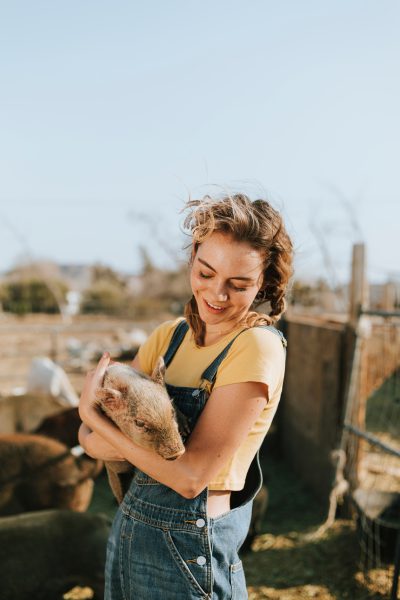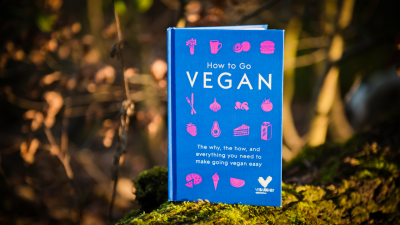Spend some time with a pig, and you’ll quickly find they are curious, affectionate, and fun-loving animals. They are also really intelligent, social, and love a belly rub!
In a report published by the International Journal of Comparative Psychology, researchers Lori Marino and Christina Colvin demonstrated that pigs possess cognitive capabilities similar to domesticated animals and young children. They proved that pigs show self-awareness, including what they like and dislike, enjoy creative play, and experience emotions similar to our own.
Pigs Are Like Dogs
Through their research, Marino and Colvin discovered a level of cognitive complexity which indicates pigs are not altogether different from dogs, cats, and even ourselves. Pigs exhibit:
- Excellent long-term memory
- An understanding of symbolic language
- A sense of time, including remembering specific episodes from their past and anticipating future events
- Ability to navigate mazes
- Creative play
- Ability to distinguish others—pigs and humans alike
- Ability to understand other perspectives
- Empathy and emotions
- Distinct personalities
Like dogs, pigs also wag their tails when they are happy, are perfectly content snoozing the day away, and really love a belly rub. In fact, the only notable difference between a pig and dog is simply the way each of these species is perceived by humans.
The Language of Pigs
Of course, pigs have their own language, too. Research by the University of Lincoln revealed the grunts made by pigs vary depending on their individual personality, and can convey important information about their experiences.
“The sounds [pigs] make convey a wide range of information such as the emotional, motivational and physiological state of the animal. For example, squeals are produced when pigs feel fear, and may be either alerting others to their situation or offering assurance. Grunts occur in all contexts, but are typical of foraging to let other members of the group know where they are,” stated principal researcher, Dr Lisa Collins.
This may be news to people, but that’s only because we have never taken the time to really understand pigs and other animals. Did we really assume that only humans had language?!
Pigs Are Individuals
When we stop thinking about pigs as food, we can see that these animals are all individuals. Some are inquisitive and curious, others are shy and quiet, but each as their own unique personality, and their own friends and preferences. Browse the internet and you’ll find plenty of rescued pigs living their very best lives. We wish every pig had the same chance at happiness as Esther the Wonder Pig.
Pigs Are Sentient
This should go without saying, but the sentience of animals has been denied for far too long by those who profit from their oppression and exploitation.
Finally, in 2012, a leading group of scientists signed the Cambridge Declaration on Consciousness, affirming that animals are conscious. This means they are sentient, can experience what happens to them, and have mental states which can be positive or negative for them as individuals.
This is relevant because the capacity of an animal to have both positive and negative experiences is what makes them vulnerable to harm. As Animal Ethics remarks, “there are powerful reasons to conclude that this is what should matter when it comes to giving someone moral consideration and not discriminating against that being”.
The Problem of Speciesism
As vegans, we firmly believe that all animals should be free from deliberate exploitation and harm, no matter their skills, intelligence, personalities, or abilities. However, the question of our differential treatment of pigs and dogs, for example, is particularly thought-provoking because they share so many similarities.
Since pigs (like cows, sheep, chickens, goats and other farmed animals) are sentient and intelligent animals with their own emotions and individuality, why do we eat them? The answer is partly to do with ‘speciesism’. Speciesism is as a form of discrimination where one species (humans) favors certain species over others. This leads to the exploitation and mistreatment of certain animals by humans.
You can help end the suffering of pigs and factory farmed animals today. Take the pledge to try vegan and discover how joyful and rewarding a vegan diet can really be.



